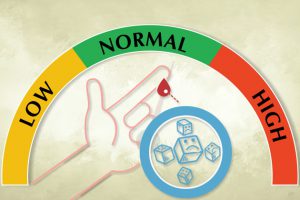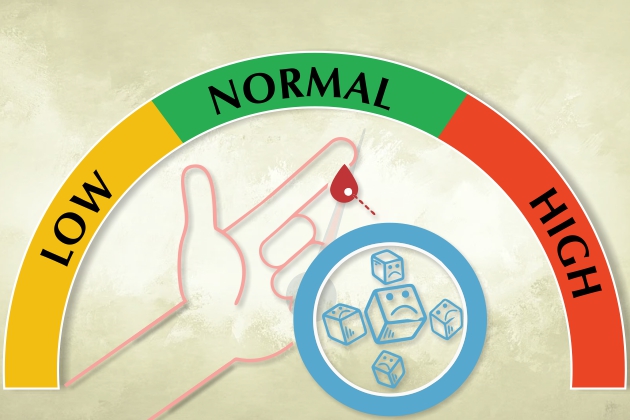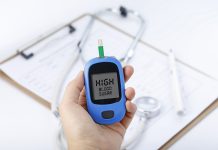

How much glucose in the blood is too much or too little? And why is it dangerous for your health to have high or low blood glucose levels? Here’s how having high or low blood sugar levels affect your health.
What are Blood Glucose Levels?
Blood glucose comes from the food you consume. Carbohydrate-containing meals are transformed into sugars when consumed. These sugars are released in the blood and carried to the body cells to use for energy. The pancreas releases a hormone called insulin that forms a bridge to allow the glucose to go from the blood to the cells. When the body cells take up the sugars, the blood glucose levels go down.
What are normal blood glucose levels for adults?
| Fasting & PP | Normal Range |
| After fasting for at least 8 hours | Less than 100 mg/dL |
| After 2 hours of eating food | Less than 140 mg/dL |
Any glucose levels lower or higher than normal are unhealthy. A level higher than 200 mg/dL after two hours of eating indicates diabetes. If the blood glucose levels are higher than normal but not as high as the range of full-blown diabetes, it indicates prediabetes.
When you have diabetes, your body isn’t capable of transporting the sugar from the blood to the cells. This could be either a problem with the cells using insulin, or the pancreas producing insulin, or both. The unused sugar accumulates in the blood and the blood glucose levels keep increasing if left untreated or not managed well through diet.
Glucose and Your Body
If blood glucose levels are high (hyperglycemia), it acts as a slow poison.
- It can erode the ability of cells in your pancreas to make insulin, causing permanent damage to the pancreas over time.
- It can cause changes in the body, leading to hardening of the blood vessels, called atherosclerosis.
If the blood vessels are damaged, it can lead to health conditions such as:
- Stroke
- Kidney disease or kidney failure
- Heart attack
- Weakened immune system
- Vision loss or blindness
- Erectile dysfunction
- Nerve damage (neuropathy)
- Slow wound-healing and possible amputation in some rare cases
If your blood glucose levels are low, below 70 mg/dL (hypoglycemia), you may feel:
- Light-headed
- Dizzy
- Irritated
- Sweaty
- Tired
- Anxious
- Shaky
- Confused
If the sugar level drops to below 20 mg/dL, you may lose consciousness or even have a seizure.
As a thumb rule, keep your blood glucose levels as close to the normal range as possible to avoid complications. You can achieve this by taking medications as prescribed, following a healthy, balanced diet, and exercising regularly.










